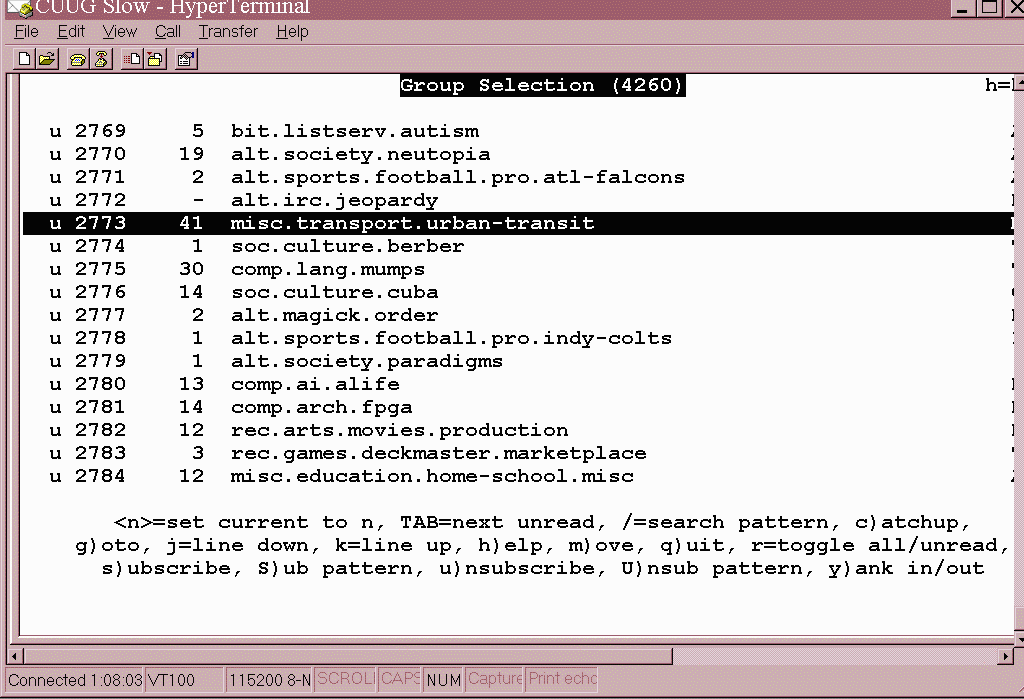The Internet, right from the very start, has always been a medium of communication. Almost as soon as there were networks to connect computers, programmers began to figure out ways to transmit information between them. Take Usenet, for instance. Usenet was an early Internet discussion platform, a system akin to modern day message boards. And for a lot of early Internet adopters, it was a platform for conversations that spanned the globe and their preferred method of contact with like-minded spirits.
Which is why two Usenet threads, posted exactly two months apart in 1991, laid the groundwork for some seismic changes in the world of the Internet.
But first, let’s get a handle on Usenet, because it was massively important in the early days of the web. It was originally created by a couple of students at Duke University in 1979. They were able to connect their own server to another server at the University of North Carolina Chapel Hill. Once connected, they began to send messages and announcements between the two schools via Usenet. A year later, Usenet would be integrated directly into ARPANet, which would very soon become the modern day Internet.
Usenet is a distributed network communications system developed specifically for Internet discussions. Usenet is broken up into several distinct categories, i.e. sci.* (science) and comp.* (computers), each with their own subcategories. These categories are known as newsgroups, and each of them contains its own self-contained message threads, like an online forum. To become a part of these newsgroups, users can download a client (browser) that allows them to connect to a local Usenet server.
The system itself is decentralized, which means that there is no single server that broadcasts messages out to the rest of the world. Instead, each time a user posts to Usenet, their local Usenet server then connects to another server, sends the message and downloads new posts, which then connects to another server, and so on and so on until the message has propagated everywhere. Like blood pumping through the body, messages constantly circulate throughout the network so every server is up to date. These servers also will delete older threads as newer ones come up in order to save space.
Usenet might sound a bit confusing, but in practice it is extraordinarily secure and efficient. In the early days of the Internet, most research institutions and universities had their own Usenet server set up, connected to just about every newsgroup. So it didn’t take much for more advanced computer users to hook their Usenet browser up to the server and start participating in newsgroup discussions. Which brings us to 1991, and the first of our breakthroughs.
At the time, programmer and student Brendan Kehoe was working on computer systems at Widener University. In the first half of 1991, Kehoe had a run-in with a particularly nefarious user on his server. Like other Internet geeks in the early ’90s, he felt right at home on Usenet. So on June 6, 1991 he posted to the comp.admin.policy newsgroup looking for some advice.
Here’s a question: how do other people deal with users that they *think* are doing no-nos around the net? One of our users had the habit of occasionally going net-surfing and doing the hit-and-run type of attempts
And that, ladies and gentleman, was the first time anybody had ever referred to browsing the Internet in terms of surfing. Kehoe is largely known as the creator of this particular idiom, and its origins trace back to this very message. Over the years, surfing the net (and later web-surfing) would become an incredibly common phrase in tech circles, and news articles, and eventually, as a part of everyday vernacular. But in 1991, people were still grasping with the concept of the Internet and how to describe it. As the Internet spread to relative ubiquity, phrases like surfing the net would become incredibly important in helping others grasp the concept.
Now let’s skip ahead to exactly two months later, on August 6, 1991, over on the alt.hypertext newsgroup. A simple thread began with some chatter about hypertext, specifically hyperlink implementations. One user asked if anyone out there had any good examples of hyperlinks in the wild. That’s when an employee at CERN, Tim Berners-Lee, decided to show off a project he was working on.
The WWW project was started to allow high energy physicists to share data, news, and documentation. We are very interested in spreading the web to other areas, and having gateway servers for other data. Collaborators welcome!
While working at CERN, Berners-Lee had put together all of the elements of the World Wide Web, and it was even starting to get some use internally. But he had yet to announce the project publicly. The message above was his first time doing so. The venue he chose was the most familiar to him. In a Usenet post, unceremoniously tucked away inside another thread.
Lots of other members of alt.hypertext had follow-up questions, and eventually Berners-Lee put together a more formal introduction to his web project. This more or less got the ball rolling on a general interest in the web from the larger Internet community. Over the next few months, Berners-Lee would begin circulating the WWW project through other newsgroups, and slowly but surely the idea would spread.
I’m sure if Usenet didn’t exist, programmers would simply find a different way to converse. Personally, I’m glad Usenet was there. It kept a close-knit community in a constant exchange of ideas that led to breakthrough after breakthrough. Far too many too count. But don’t forget that among them was the World Wide Web.


Leave a Reply